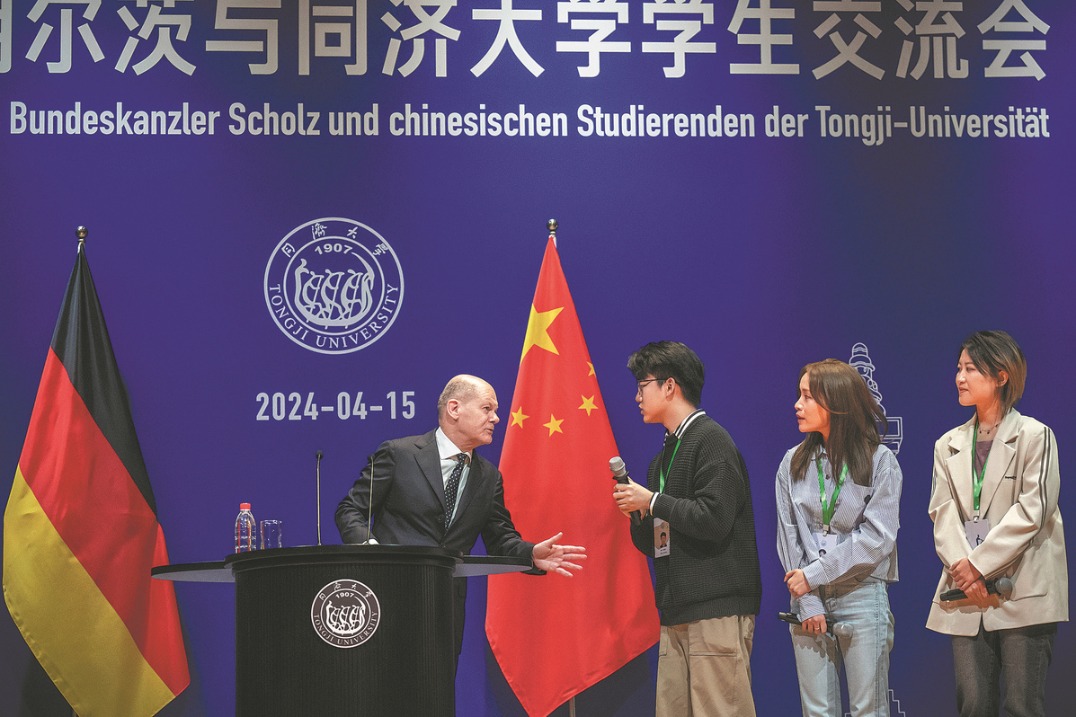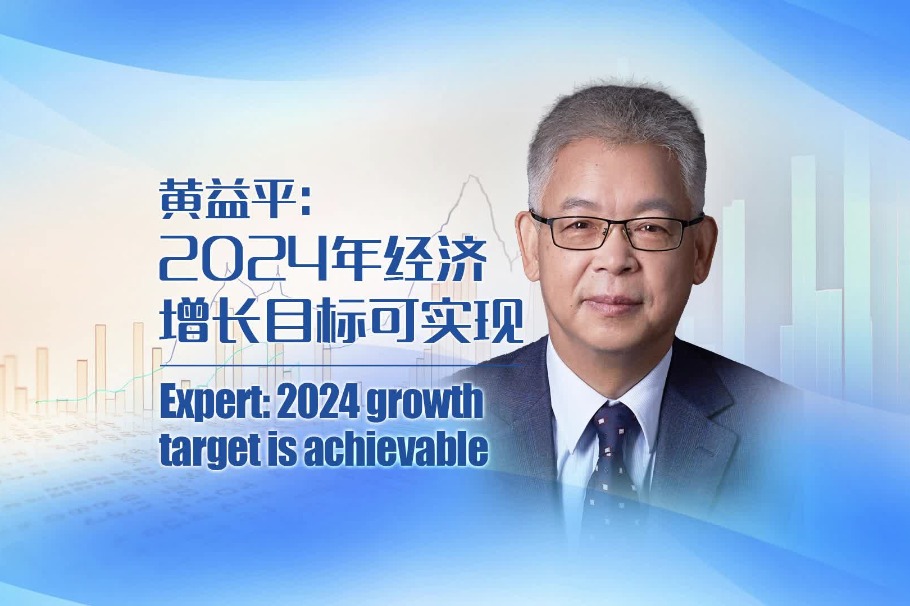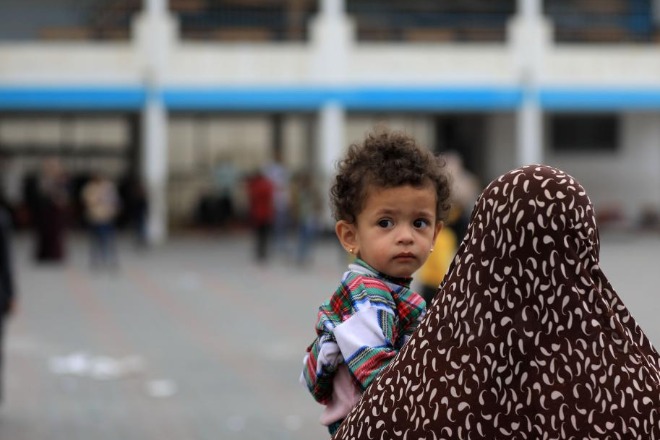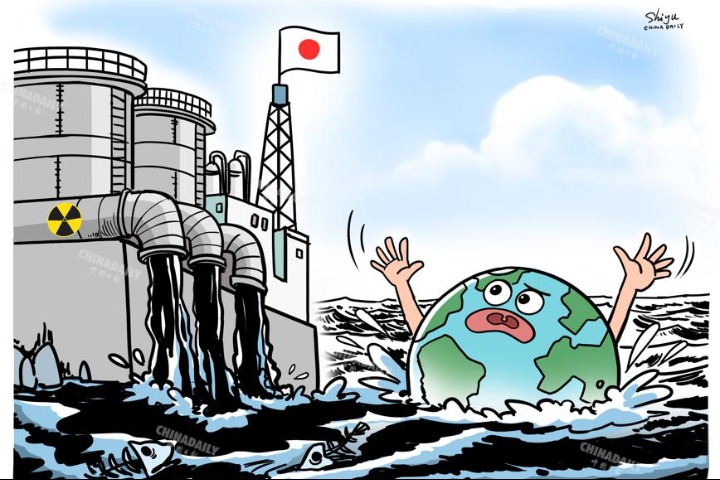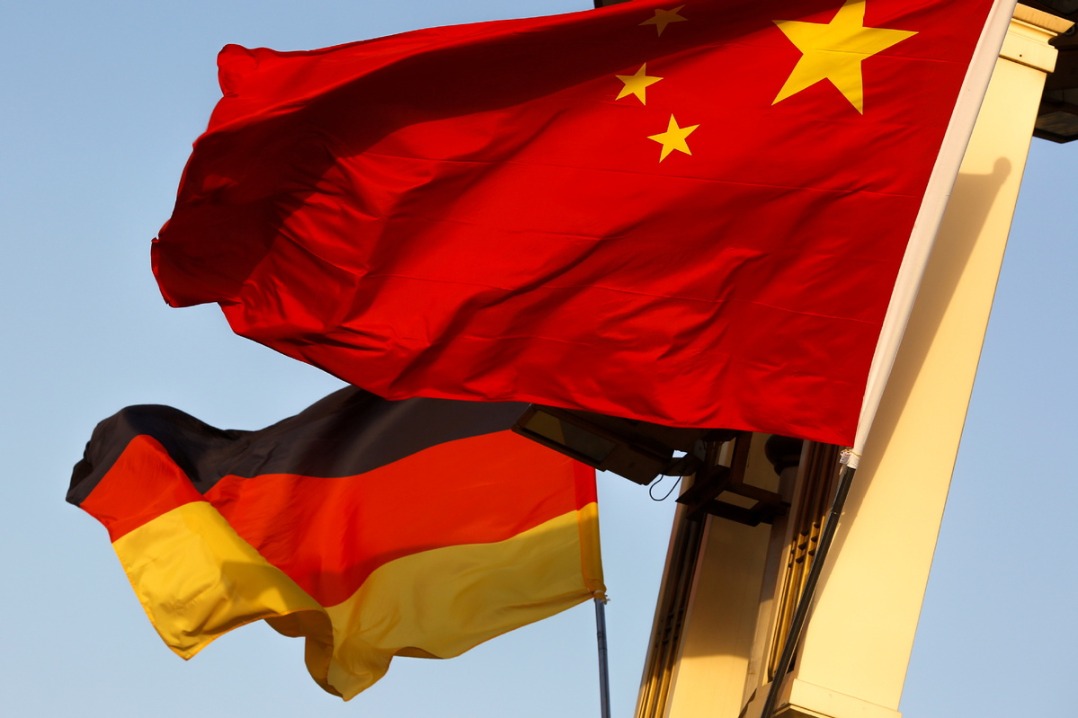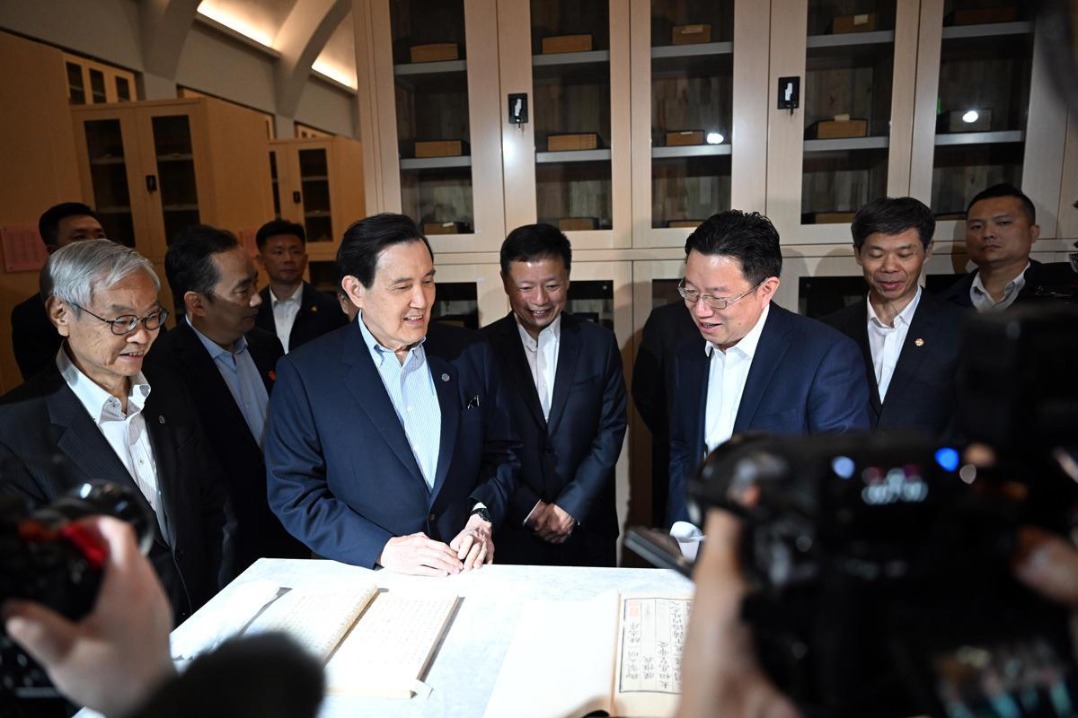A community of shared future with Pakistan

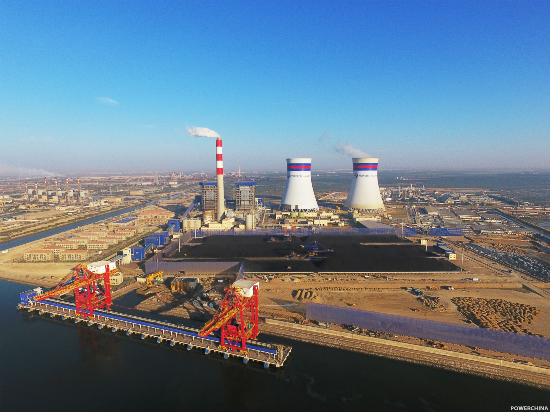
China-Pakistan relations are a model of state-to-state relations. As President Xi Jinping put it, China-Pakistan relations should be a model of good-neighborly friendship, a pillar of regional peace and stability, and a benchmark for international cooperation on the Belt and Road Initiative.
No matter how the international and regional situations change, China-Pakistan friendship will remain unbreakable and grow from strength to strength.
Successive Pakistani governments have made Islamabad's relationship with Beijing as the cornerstone of their foreign policy. The support for China-Pakistan friendship and the China-Pakistan Economic Corridor has become an across-party, across-regional and across-board consensus in Pakistan.
Thanks to the largest number of ongoing projects with the fastest progress, the CPEC has become a major pilot project of the Belt and Road Initiative. Up to now, nine projects have been completed and 13 are under construction. The CPEC has progressed in four major agreed areas: ports, transportation infrastructure, energy and industrial cooperation. It has so far created 70,000 direct jobs for the local people.
CPEC is focused on development
The CPEC is development oriented. At present, 15 energy projects are planned as priority with a total capacity of 11,110 megawatts, among which, 11 are under construction or in operation and their total capacity is 6,910 MW. To help the "iron brother" in need, many Chinese engineers have traveled to Pakistan, and worked shoulder to shoulder with Pakistani colleagues, sometimes day and night.
Recently, many friends have told me that power outages have reduced, making this summer more enjoyable. This is really good news to me, and the CPEC workers from both countries.
I am also happy to see the transportation infrastructure projects advancing rapidly. The cargo shipment from Gwadar Port is increasing day by day. And the Gwadar Free Trade Zone has been officially inaugurated, attracting investment from both China and Pakistan.
The CPEC is people oriented, too. It adheres to the Belt and Road Initiative's principles of mutual consultation, joint construction and shared benefits. Any CPEC project, whether at the planning or construction stage, is equally negotiated, fully discussed and jointly implemented by China and Pakistan. These projects strictly follow the principle of market orientation and the international business model.
The CPEC has adopted advanced technologies and strict environmental protection standards. And the Chinese government strictly supervises the CPEC projects, and prohibits all Chinese companies from indulging in corruption.
China will help Pakistan develop
As a well-wisher of Pakistan, China would like to help Pakistan march toward growth and prosperity. Newly elected Pakistani Prime Minister Imran Khan recently stated that he attaches great importance to China-Pakistan relations, and the CPEC provides an important opportunity for Pakistan's development. I highly appreciate his remarks and believe that the new government will bring new opportunities.
Developing China-Pakistan relations has always been a priority of China's neighborhood diplomacy. China is looking forward to strengthening cooperation with the new Pakistani government, bringing more dividends of the CPEC to the grassroots and the general public in Pakistan, making it a model project for the benefits of both peoples.
China will actively promote investment in Pakistan. The Chinese government will firmly promote industrial cooperation, expand China's direct investment in Pakistan, and encourage Chinese enterprises to actively participate in the construction of special economic zones. Its focus of cooperation will be upgrading Pakistan's manufacturing capacity and expanding export-oriented industries.
We will continue to organize delegations from the private sector in China to visit Pakistan and set up various platforms for business-to-business cooperation. We will also continue to promote the transfer of high-quality and advanced industrial technologies from China to Pakistan, establish more joint ventures, and strengthen the brand of "Made in Pakistan".
China will also actively expand its imports from Pakistan. In November, China will hold the first China International Import Expo in Shanghai, where, as one of the "Chief Guest" countries, Pakistan has been invited to send a large delegation of exporters and set up exhibitions at both the national and export levels. It is hoped that Pakistan will make full use of this opportunity to promote its superior products to China.
The Chinese side will also promote cooperation between the customs and quarantine authorities of both countries to facilitate the further opening-up of China's agricultural product market to Pakistan. China will, under the framework of free trade cooperation between the two countries, provide a larger market share for Pakistani goods, and strengthen cooperation and facilitate local trade between Gilgit-Baltistan and China's Xinjiang Uygur autonomous region. And China will take further visa facilitation measures to encourage more Pakistani businesspeople to visit China.
Improving Pakistani people's livelihoods
Besides, China will focus more on helping Pakistani people improve their livelihoods. It will actively promote cooperation between the two countries' universities, establish more vocational and technical training centers in Pakistan, provide aid for building 50 schools in the tribal districts of Khyber Pakhtunkhwa province (that is, in the former Federally Administered Tribal Areas), expand the primary school in Gwadar "donated" by China. The purpose of this is to help Pakistan improve the quality of its human resources, especially of the youth.
Besides, China will consider setting up an agricultural technology demonstration center in Pakistan to improve local agricultural technology, production efficiency and value-added agricultural industry. It also will strengthen scientific and technological cooperation with Pakistan, establish a China-Pakistan Joint Research Center on Earth Science, strengthen scientific research on disaster reduction and prevention, promote ecological and environmental protection, and help develop green and sustainable growth in Pakistan.
Moreover, Beijing will encourage Chinese companies to fulfill their social responsibilities and play a more active role in sponsoring livelihood projects. We will also explore more pragmatic cooperation with Pakistan in such areas as poverty alleviation and healthcare.
In a nutshell, the CPEC is a joint project and joint asset of and joint opportunity for the two countries and the two peoples. China is ready to work with Pakistan to maintain the momentum of high-level exchanges, making good use of the CPEC to deepen our pragmatic cooperation in trade, investment, agriculture and livelihood.
Let us work together to push our all-weather friendship to new heights to build a community of China-Pakistan shared future at an early date.
The author is the Chinese ambassador to Pakistan.

















